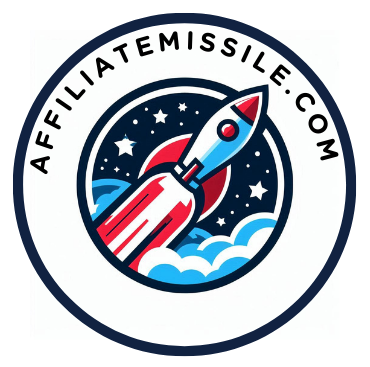
Intro
In the ever-evolving world of online marketing, affiliate marketing has emerged as one of the most effective ways to monetize content and generate passive income. While platforms like Instagram, YouTube, and Twitter have long been the go-to places for affiliate marketers, Facebook remains a significant player in the digital marketing ecosystem. In this article, we’ll dive deep into Facebook’s affiliate marketing program, how it works, its benefits, and tips for success.
What is Affiliate Marketing?
Before exploring Facebook’s role in affiliate marketing, it’s important to understand what affiliate marketing is and how it works. Affiliate marketing is a performance-based marketing strategy where businesses reward individuals (affiliates) for driving traffic or sales to their products or services. Affiliates promote products through unique affiliate links and earn commissions whenever someone clicks on their link and makes a purchase.
Affiliate marketing can take place across a variety of channels, including blogs, websites, social media platforms, email marketing, and even through podcasts. Facebook, with its vast global reach and diverse audience, offers an excellent platform for affiliate marketers to reach potential customers.
The Facebook Affiliate Marketing Opportunity
Facebook’s affiliate marketing program doesn’t operate through a single dedicated platform or app like other affiliate networks (e.g., Amazon Associates or ShareASale). Instead, Facebook enables affiliate marketers to share affiliate links directly in posts, stories, groups, and even Facebook ads. This flexibility allows marketers to use Facebook as part of a broader affiliate marketing strategy that spans multiple touchpoints.
Key Features of Facebook for Affiliate Marketers
- Massive User Base
With over 2.9 billion active users (as of 2024), Facebook is one of the largest social media platforms in the world. This gives affiliate marketers access to a broad and diverse audience, enabling them to target various demographics and niches. - Advanced Targeting Capabilities
Facebook offers sophisticated targeting options through Facebook Ads, allowing affiliate marketers to target specific groups based on interests, location, behaviors, and more. This can increase the effectiveness of their campaigns and drive high-quality traffic to affiliate offers. - Integrated Shopping Features
Facebook has introduced several features that streamline the shopping experience, including Facebook Shops and the ability to tag products in posts and stories. While these features are primarily designed for businesses selling their own products, affiliate marketers can use these tools to create a seamless experience for users clicking on affiliate links. - Facebook Groups
Facebook Groups are another valuable tool for affiliate marketers. These communities provide a space for like-minded individuals to interact and engage with content. By building or joining relevant groups, affiliate marketers can create trust, share valuable insights, and promote affiliate products without appearing too “salesy.” - Live Streaming
Facebook Live allows users to broadcast live videos to their followers. Live streaming offers a unique opportunity for affiliate marketers to showcase products, explain their benefits, and answer questions in real time. This helps build rapport and credibility with audiences, which can lead to higher conversion rates.
How to Get Started with Affiliate Marketing on Facebook
Although Facebook doesn’t have a formal affiliate marketing program like some other platforms, you can still use the site to promote affiliate products. Here are the key steps to get started:
1. Create a Facebook Business Account
If you don’t already have one, creating a Facebook Business Account is the first step to effectively promote affiliate products. A business account gives you access to advanced features such as Facebook Ads, analytics, and the ability to create Facebook Pages for product promotions.
2. Join Affiliate Programs
Once your business account is set up, you need to join affiliate programs or networks that align with your niche or audience. Some popular affiliate programs include:
- Amazon Associates
- ShareASale
- ClickBank
- Rakuten Marketing
Each of these programs provides affiliates with unique affiliate links to share. When you join an affiliate program, make sure to review its terms and conditions to ensure you’re compliant with Facebook’s guidelines (more on that later).
3. Promote Affiliate Products on Your Facebook Page
Once you have affiliate links, you can start promoting products on your Facebook Page. The best practices for promotion include:
- Engaging Content: Create posts that provide value, such as product reviews, tutorials, or demonstrations.
- Storytelling: Share personal stories or case studies that illustrate how the product has benefited you or others.
- Clear Calls-to-Action: Always include a clear CTA to encourage followers to click the affiliate link.
4. Use Facebook Ads for Targeted Campaigns
While organic reach on Facebook can be limited, using Facebook Ads can be an effective way to amplify your affiliate marketing efforts. You can create ads that promote your affiliate products and use Facebook’s detailed targeting features to ensure your ads reach the right audience.
5. Leverage Facebook Groups
Building or participating in Facebook Groups can significantly enhance your affiliate marketing efforts. Here’s how:
- Create a Niche Group: Build a community around your niche, where you can share relevant content and promote affiliate products subtly.
- Participate in Relevant Groups: Join established groups related to your niche and share helpful information, reviews, or affiliate links where permitted.
6. Track Your Performance
Using Facebook Insights and other analytics tools, you can track the performance of your affiliate posts and ads. This allows you to see which content resonates most with your audience and which affiliate products generate the most sales.
Best Practices for Affiliate Marketing on Facebook
While Facebook offers great opportunities for affiliate marketers, success doesn’t come overnight. Here are some best practices to follow:
1. Follow Facebook’s Affiliate Marketing Guidelines
Facebook has strict guidelines for advertisers and marketers, and it’s essential to comply with their rules when promoting affiliate products. Make sure you:
- Disclose Affiliate Relationships: According to Facebook’s Advertising Policies, you must disclose when a post contains affiliate links. This is important to maintain transparency and avoid any issues with Facebook or your audience.
- Avoid Misleading Claims: Never mislead your audience about the potential benefits of a product. Be honest and authentic in your promotions.
- Respect the Community Guidelines: Don’t spam Facebook Groups with affiliate links or excessive promotional content. This can lead to penalties, including being banned from the platform.
2. Use Eye-Catching Visuals
Facebook is a highly visual platform, and posts with compelling images or videos tend to perform better. Invest in high-quality visuals that showcase the affiliate products in use, and consider creating videos or infographics that explain the benefits of the products you’re promoting.
3. Test and Optimize Your Ads
If you’re running Facebook Ads to promote affiliate products, always test different ad creatives, headlines, and targeting options to see what works best for your audience. Use A/B testing to refine your approach and maximize ROI.
4. Build Trust with Your Audience
Affiliate marketing is most effective when you’ve built a relationship of trust with your audience. Don’t just push sales; engage with your followers by offering helpful content, answering questions, and building rapport. Over time, this trust will increase the likelihood that your audience will take action on your affiliate recommendations.
5. Focus on Providing Value
The key to successful affiliate marketing is to focus on providing value to your audience. Offer insights, tips, and solutions that align with their needs and pain points. When your recommendations are genuinely helpful, conversions will naturally follow.
The Pros and Cons of Facebook Affiliate Marketing
Pros:
- Wide Reach: Facebook’s massive user base provides an excellent opportunity to reach diverse audiences.
- Advanced Targeting: Facebook Ads allow you to target specific segments, increasing the chances of reaching potential buyers.
- Engagement: With Facebook’s various interactive features, you can engage directly with your audience, building a stronger relationship.
- Flexibility: You can promote affiliate products through organic content, ads, groups, and live streams.
Cons:
- Policy Restrictions: Facebook’s strict rules around affiliate marketing can sometimes limit your promotional strategies.
- Organic Reach Limitations: Organic reach has decreased in recent years due to Facebook’s algorithm changes, requiring more investment in paid ads to achieve visibility.
- Competition: Due to the platform’s popularity, many other marketers may be vying for the same audience, making it harder to stand out.
Conclusion
Facebook is a powerful platform for affiliate marketers, offering access to billions of users and advanced tools for targeting, content creation, and engagement. By following best practices, adhering to Facebook’s guidelines, and focusing on providing value to your audience, you can successfully leverage Facebook for affiliate marketing. Whether you’re just starting or you’re looking to scale your efforts, Facebook provides numerous opportunities to grow your affiliate marketing business.
